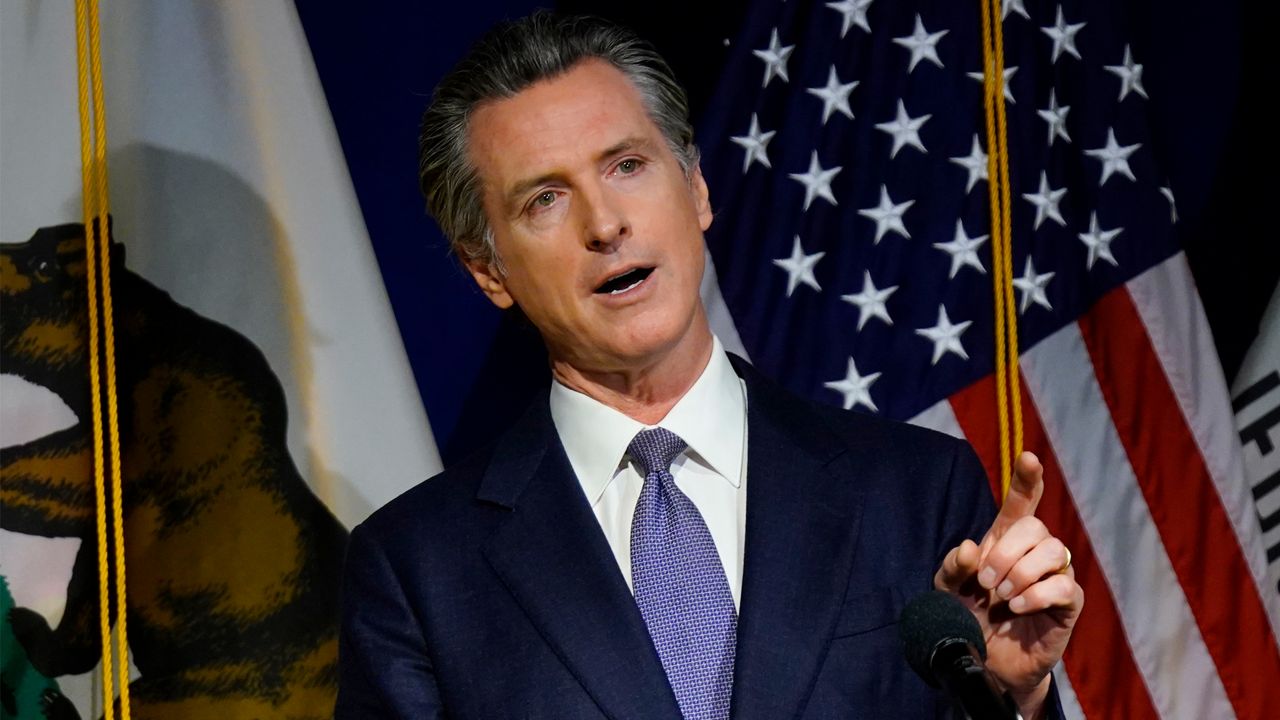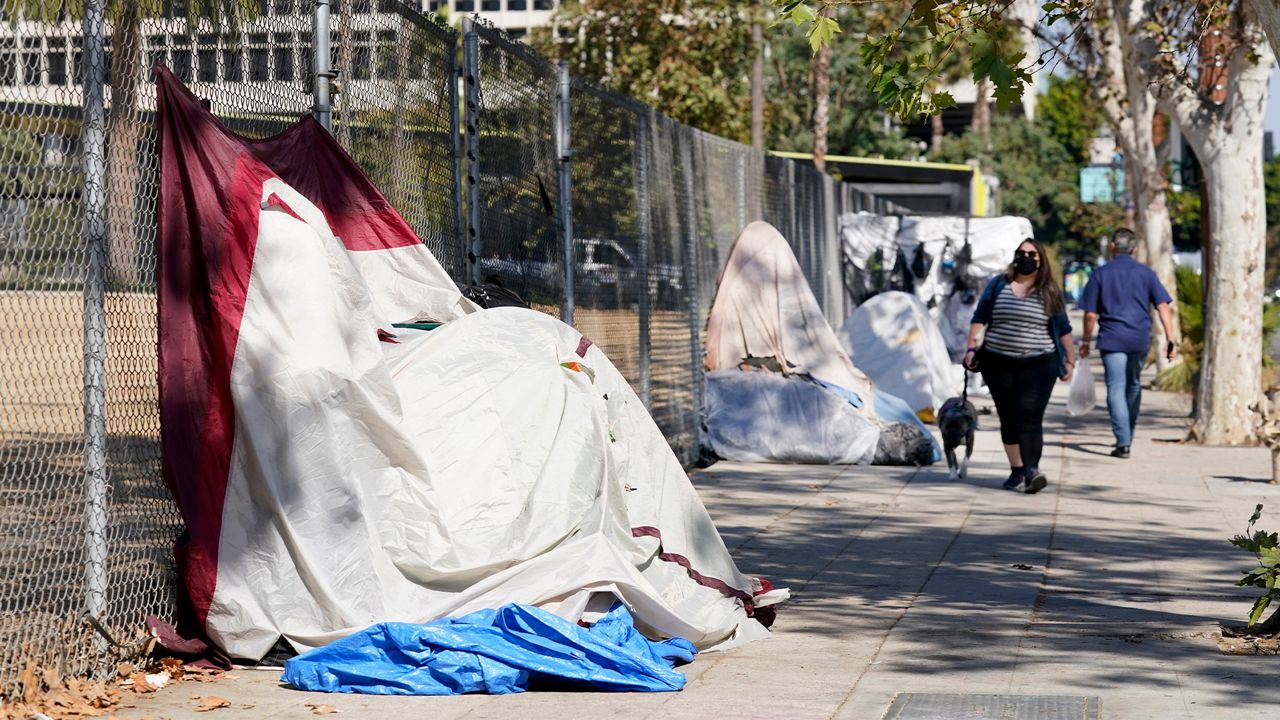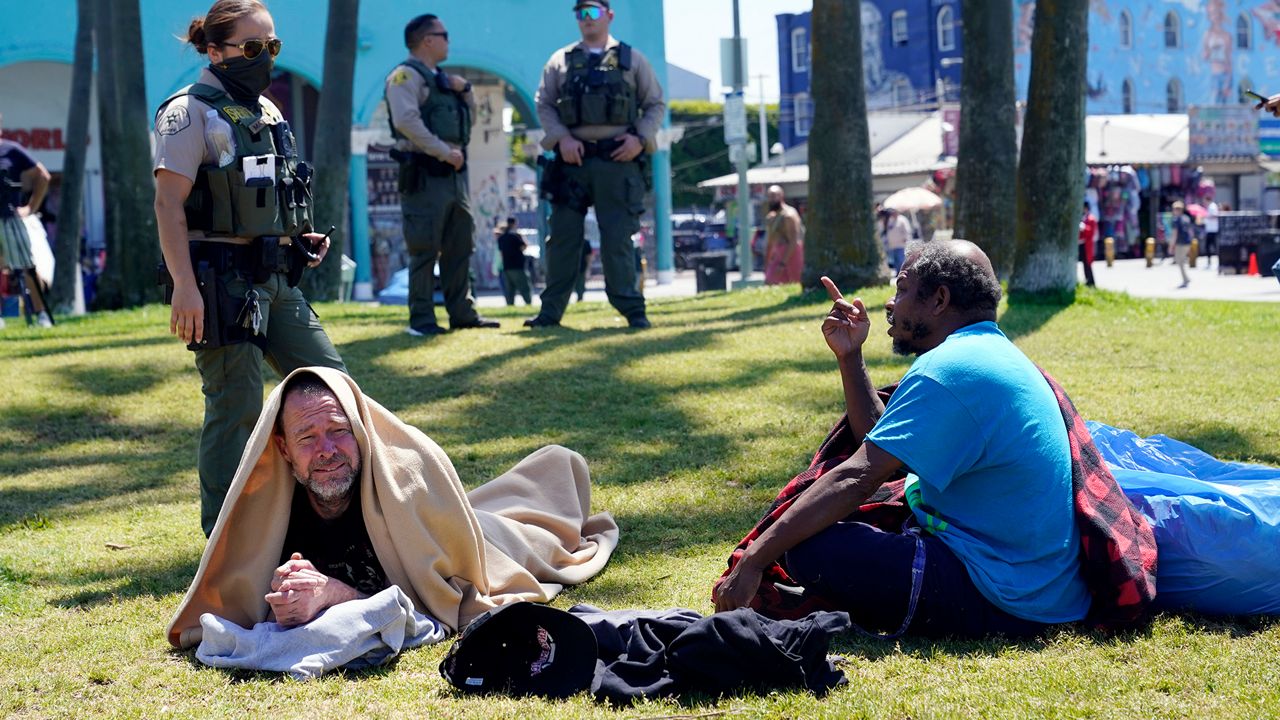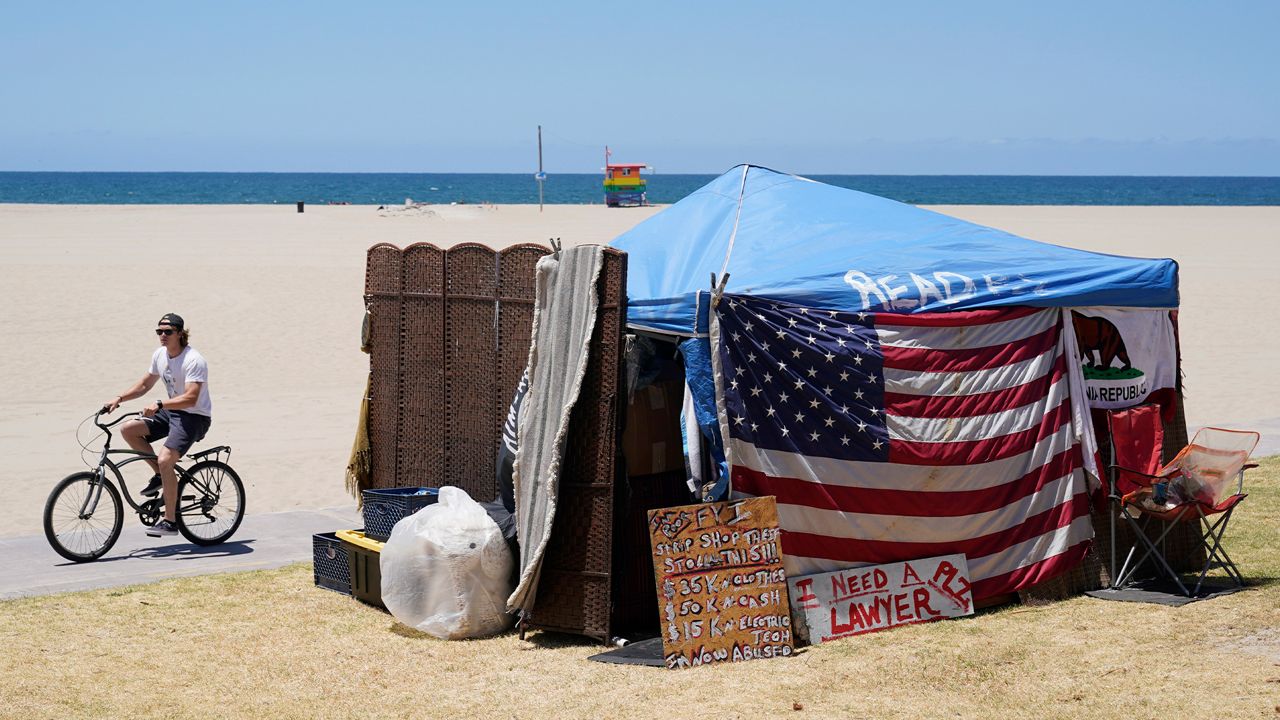CARSON, Calif. — Envelopes filled with papers cover Adelina Willis’ dining table. Each sheet is a reminder that her time in the family home is limited. The mobile home park she lives in, Imperial Avalon Mobile Estates, is set to close in as soon as six months.
“I have to accept it. This is not our land. We have to go. Then, we have to go,” Willis said.
For the last year, she’s been contemplating what her next move will be. The payout she’s being offered, she said, won’t be enough for her to put a down payment on another mobile home. In the meantime, she’s slowly putting her memories and belongings into boxes.
“I am so sad because I don’t want to leave. This house is old. But it is… I love it. It is quiet in here you know..and everything is. Oh, I don’t know,” Willis said.
The looming transition has left her emotional. Willis is one of hundreds of mobile home park residents who will soon have to make a decision to either take an offer to relocate their mobile home, take the appraised value or originally amount paid, or an option to get about 45% of the appraised value with the promise of subsidized housing once the development is complete.
Darren Embry is with Imperial Avalon LLC, the property owner that is developing the site. He sent Spectrum News 1 a statement that read in part:
“We are making sure that every resident has the one-on-one attention, care, and understanding that they deserve. The site is ultimately planned for a mixed-use residential project with for-sale and rental units, to which the current residents can return, again at low income rental rates.”
According to the park’s HOA, the majority of residents were being offered an average of $75,000 or less. But this is just one of three mobile home parks in the city with a closure on the horizon. According to the California Department of Housing and Community Development, 41 mobile home parks have closed in the state since 2015.
USC professor Gary Painter, who has a background in housing and urban economics believes mobile home land is an attractive buy for developers, especially, in California’s housing market.
“In many ways, what was a form of affordable housing is now at-risk in many communities because the land is so valuable,” Painter said.
Painter shared that high-rise housing developments allow developers to build up and create more units on a single plot of land that single-story mobile homes are on. But it comes at a cost to those in need of the affordable spaces.
“If we end up in a world where people who only have moderate or low-income keep getting pushed further and further away from where the best job opportunities are, then we are going to have a situation where we all face a burden because of congestion increases,” Painter said. “For people who are low-income, they may actually hit the breaking point.”
That’s why mobile home park residents have been rallying in the city of Carson for the last year in hopes of someone hearing the pleas for help. City of Carson Mayor Lula Davis-Holmes says the deals being offered to Imperial Avalon Mobile Estates residents are fair.
Her office sent this statement that reads in part that the city “has done its best to balance the property rights of the mobile home park owners against the property rights of the coach owners and the needs of its mobile home park residents...”
"The package was designed to make sure not only every single senior citizen, but all the residents of the park, would have a place to live at the affordable rents they were paying for at least 20 years. No one will be homeless.”
But the fear for Willis still lingers as she prepares for the inevitable move.
“They know we have to move. But the time is when? Because we cannot just move, you know, because the money they are giving us is not enough,” Willis said.
She’s not sure what her best option will be. But she’s hoping her best path forward will lead her to a place she can afford to call home.
Full Statement from Carson Mayor Lula Davis-Holmes:
"The City of Carson, faced with three mobile home park closure applications all filed prior to 2021 by mobile home park owners in recent years, has done its best to balance the property rights of the mobile home park owners against the property rights of the coach owners and the needs of its mobile home park residents, while following the state mandated requirements of the applicable mobile home park closure application law.
State law provides that mobile home park owners can close their mobile home parks provided they meet certain requirements related to identifying and mitigating the adverse impacts of the mobile home park closure on the displaced residents’ ability to find adequate housing in another mobile home park.
Prior to 2021, the state mobile home park closure laws did not provide meaningful protection for mobile home park residents. In 2020, the City of Carson expended its own resources and won changes to the state law to provide the maximum protections to residents in mobile home park closures. The passage of AB 2782, which became effective January 1, 2021, among other things, removed the limitation of prior law that stated the steps required to be taken to mitigate the adverse impacts of a park closure “shall not exceed the reasonable costs of relocation,” and added a more robust requirement that “if a displaced resident cannot obtain adequate housing in another mobile home park, the person or entity proposing the change of use shall pay to the displaced resident the in-place market value of the displaced resident's mobile home.” Something the park owners previously always successfully challenged municipalities on.
Even before the change in state law, the City of Carson, faced with a park owner application for the closure of Imperial Avalon Mobile Estates, imposed a relocation benefit package for the residents that has been referred to as the highest relocation package in the state of California as of the date of the City’s final action on that application in July of 2020. The package featured three alternative options for the residents, including an option to receive (among other benefits) payment in the amount of the appraised on-site value of the resident’s coach or the purchase price the resident paid for their coach, whichever is higher (a package estimated to be worth some $90,000+ on average per resident household, with some households receiving over $230,000), and an option to receive a guaranteed right of tenancy in low-income park owner-subsidized affordable housing in Carson for 20 years, in addition to 45% of the aforementioned lump sum (a package estimated to be worth up to approximately $500,000 in some cases). Residents were also given a minimum of almost 18 months between the time of the City’s final action and the earliest possible date of park closure. The package was designed to make sure not only every single senior citizen but all the residents of the park would have a place to live at the affordable rents they were paying for at least 20 years. No one will be homeless.
The City of Carson prides itself on its reputation across the state for being an ardent supporter and protector of the rights of mobile home park residents. The City’s advocacy on behalf of its mobile home park residents include the passage of AB 2782, the passage of SB 510 restoring local regulatory control and protecting mobile home park residents from economic displacement or other adverse impacts resulting from efforts of mobile home park owners to engage in sham mobile home park conversions to resident ownership in order to avoid local rent control ordinances, and litigating a myriad of cases throughout the California court system and Federal court system (over ten important published opinions) that resulted in numerous judicial decisions in state law favoring the rights of cities and mobile home park residents. Further, Carson’s mobile home space rent control ordinance has been referred to as one of the most stringent rent control ordinances and has been upheld by not only the California Supreme Court but also the 9th Circuit Court of Appeals.
The City Council of the City of Carson will continue fighting for its mobile home park residents while adhering to its obligations under applicable law."
Lula Davis-Holmes
Mayor
Full Statement from Darren Embry, Community Development with Imperial Avalon LLC:
"What are the plans for this mobile home park? How are the residents being compensated?
We understand that this is a challenging process, and are going far above and beyond what is legally required – and we are glad to go the extra mile for our seniors as we help them find and relocate to their new homes.
Imperial Avalon is funding their choice of options: A) the relocation of their coaches to other mobile home parks, including moving expenses and setup costs PLUS significant rental assistance in the new park to more than make up for any difference in rent. B) We buy the coach and provide relocation assistance for any of the residents who are having challenges finding a new home that they can afford. We also have an option C) for residents’ future housing where they can return to housing at the site or in the Carson area with subsidized rents to accommodate low income residents for up to 20 years.
This is not an easy or simple “one size fits all” process. We are making sure that every resident has the one-on-one attention, care, and understanding that they deserve.
The site is ultimately planned for a mixed use residential project with for-sale and rental units, to which the current residents can return, again at low income rental rates which will be subsidized by Imperial Avalon.
Many are complaining the amounts being offered are too low and not what they would have received if they had sold their homes on their own.
They can certainly enter into a private transaction with any willing buyer at literally any time. Considering that the park is closing, we are actually paying significantly more than the residents would find on the open market for their coaches.
Valuations came from an initial appraisal, a second appraisal review by the City (which increased the values) and final increases to the amounts by Carson City Council which significantly raised the values and cost of relocations a third time. City Council is requiring us to pay the coach owners whatever they paid for their coach, whenever it was bought, which includes values as high as $310,000. So the total values were increased from approximately $7MM as initially appraised to over $22MM. To our knowledge, this is the most expensive private park closure in California history. We have already entered into over 70 successful escrow processes with residents and more are contacting us every day to begin the process.
The park will be closing no earlier than January 2022."











